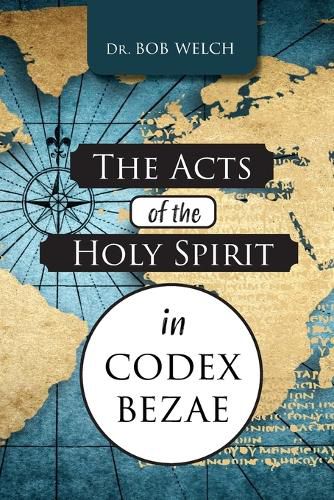Readings Newsletter
Become a Readings Member to make your shopping experience even easier.
Sign in or sign up for free!
You’re not far away from qualifying for FREE standard shipping within Australia
You’ve qualified for FREE standard shipping within Australia
The cart is loading…






This title is printed to order. This book may have been self-published. If so, we cannot guarantee the quality of the content. In the main most books will have gone through the editing process however some may not. We therefore suggest that you be aware of this before ordering this book. If in doubt check either the author or publisher’s details as we are unable to accept any returns unless they are faulty. Please contact us if you have any questions.
Since Theodore Beza first presented the major uncial manuscript, a Greek-Latin diglot, in 1581 to Cambridge University, the Codex Bezae Cantabrigiensis has been extensively analyzed and compared with the Alexandrian text-type. The last century has seen many attempts toward explaining the reason for the many variants and, subsequently, the debate has grown stronger for evidence of not only the manuscript's antiquity, but also of its importance as a 'primary' source.
The purpose for this discussion is to analyze the theological affect of the textual variants on our current understanding of Pneumatology. Specifically, an attempt will be made to ascertain the influence in Acts directly connected with the "Holy Spirit" on current debates concerning 'reception of the Spirit', intention, and normative experience. This research will attempt to suggest answers to the question: How do the variants in Codex Bezae affect our understanding of the nature and work of the Holy Spirit for...
(1) ...conversion-initiation versus Spirit reception,
(2) the theological intention of Luke, and
(3) the significance of glossolalia with Spirit reception, and ultimately...
(4) ...the importance of cooperation with the Spirit?
$9.00 standard shipping within Australia
FREE standard shipping within Australia for orders over $100.00
Express & International shipping calculated at checkout
This title is printed to order. This book may have been self-published. If so, we cannot guarantee the quality of the content. In the main most books will have gone through the editing process however some may not. We therefore suggest that you be aware of this before ordering this book. If in doubt check either the author or publisher’s details as we are unable to accept any returns unless they are faulty. Please contact us if you have any questions.
Since Theodore Beza first presented the major uncial manuscript, a Greek-Latin diglot, in 1581 to Cambridge University, the Codex Bezae Cantabrigiensis has been extensively analyzed and compared with the Alexandrian text-type. The last century has seen many attempts toward explaining the reason for the many variants and, subsequently, the debate has grown stronger for evidence of not only the manuscript's antiquity, but also of its importance as a 'primary' source.
The purpose for this discussion is to analyze the theological affect of the textual variants on our current understanding of Pneumatology. Specifically, an attempt will be made to ascertain the influence in Acts directly connected with the "Holy Spirit" on current debates concerning 'reception of the Spirit', intention, and normative experience. This research will attempt to suggest answers to the question: How do the variants in Codex Bezae affect our understanding of the nature and work of the Holy Spirit for...
(1) ...conversion-initiation versus Spirit reception,
(2) the theological intention of Luke, and
(3) the significance of glossolalia with Spirit reception, and ultimately...
(4) ...the importance of cooperation with the Spirit?